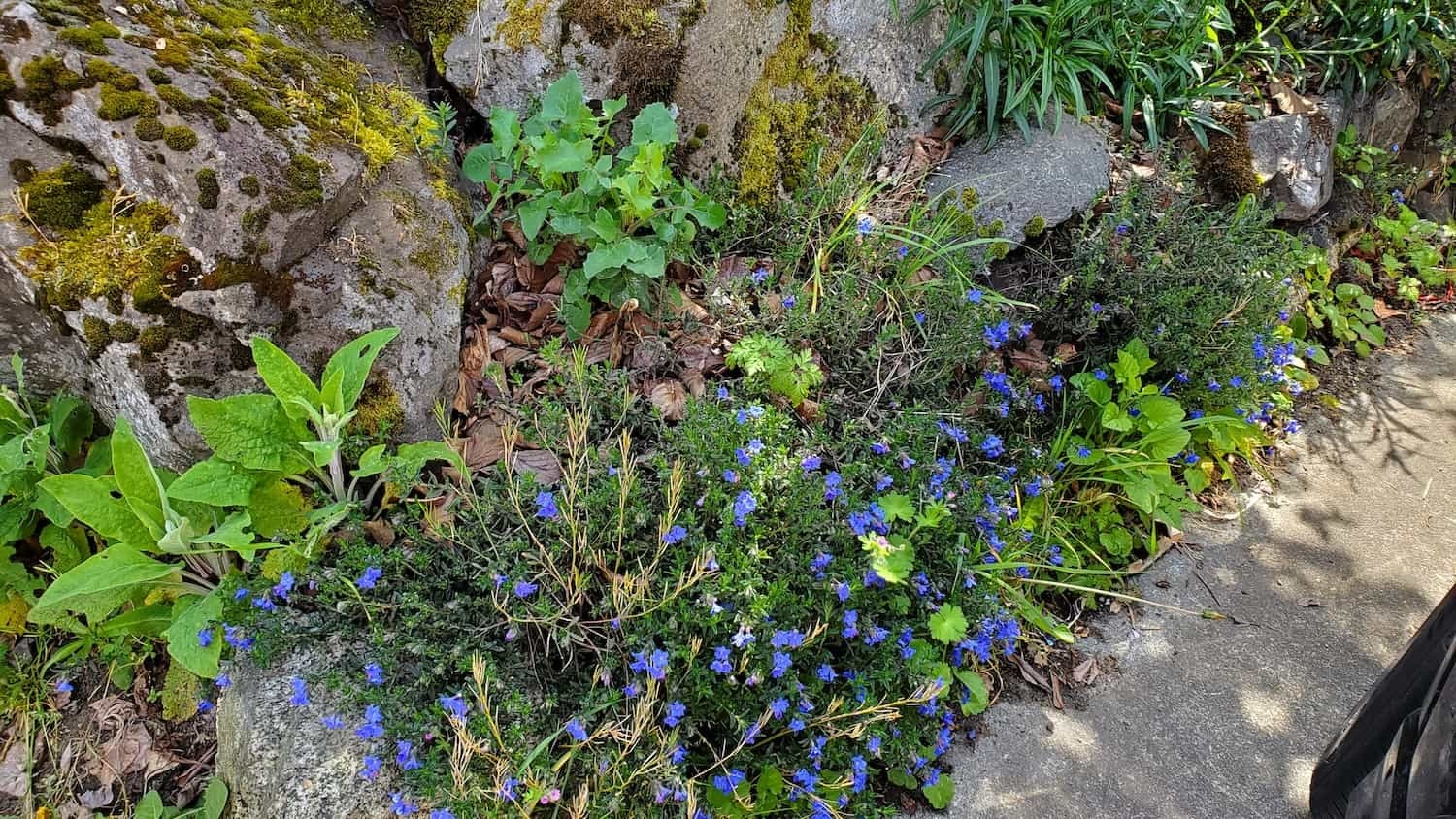West Seattle Remove perennial plants
Homeowner’s Issue
West Seattle yards deal with a specific mix of challenges: heavy winter rain, salty air near the Sound, shady pockets under big firs, and steep lots on Admiral and Fairmount. Soils here range from compacted loam to gritty clay in upland spots, which means perennials that thrive in drier, sunnier areas can collapse into messy thickets on low, wet benches. Moss and ivy flourish on shaded north-facing slopes, while sunny courtyards by Alki and Lincoln Park push tough, spreading perennials and volunteer grasses.
Homeowners notice three recurring problems: overgrown clumps that clog drainage, aggressive spreaders (think salal, creeping buttercup, or spreading sedums), and plants that hide the foundation or sightlines, creating safety and HOA compliance issues. Rain-driven erosion on sloped beds exposes roots and multiplies resprouts, so a quick dig-out is rarely a long-term fix unless soil and drainage are addressed. Many West Seattle owners want a low-maintenance, chemical-free solution that improves curb appeal without turning the yard into a high-water garden. That’s the practical target here: remove the right plants, improve the soil surface, and set up sustainable barriers so your next planting is deliberate — not accidental.
Our Quality Service
We remove perennials by hand and with small power tools when necessary, using sustainable techniques only—no herbicides. Our crew evaluates each plant for root depth, runner systems, and nearby assets (irrigation, utilities, desirable plants). Typical tools: digging bars, hand saws, root clippers, cordless reciprocating saws, and tarps for clean hauling.
Timeline: small jobs (single bed) = 2–4 hours; standard yard sections = half-day to full-day; larger landscapes or steep sites = scheduled over multiple visits. We use erosion control on slopes, add compost to improve soil structure, and install sheet mulch or organic mulch to suppress regrowth. When needed, we solarize small areas with clear plastic or apply repeated sheet-mulch layers to stop persistent spreaders. We follow Seattle Public Utilities guidance for green waste and reuse where possible.
Benefits: safer sightlines and walkways, reduced maintenance, improved curb appeal, and healthier soil that accepts new native or drought-tolerant plantings.
What’s Included
- Onsite assessment and written recommendation.
- Manual or mechanized extraction of unwanted perennials.
- Root and runner removal to reduce re-sprouting.
- Raking, light soil decompaction, and compost top-dress if requested.
- Clean haul-away or green-waste bin drop-off per your preference.
- Site sweep and tidy finish.
Options / Upgrades:
- Mulch + fabric or layered sheet-mulch (compost/wood chips) for long-term suppression.
- Organic weed control strategies (manual re-weeding schedules, solarization, mulch).
- Soil amendment (compost, coarse sand for drainage) and planting plan prep.
- Haul-away vs. green-bin service (we compost where possible).
All methods are sustainable and chemical-free; we do not use herbicides.
Before & After / Expectations
Expect some noise and soil disruption during removal — digging and sawing roots is part of the job. Access routes: we’ll need clear pathways for tools and tarps; tight side yards or steep slopes may require staged removal. Small jobs usually have same-week windows; larger, slope or permit-required work may take 1–3 weeks to schedule.
Mess and debris: we separate green waste for composting and haul larger root balls offsite if the green bin won’t accept them. Some perennial species will reshoot from fragments; we set realistic follow-up windows and recommend scheduled touch-ups in the first 6–12 months.
Care tips for West Seattle:
- Water new planting areas in the late morning to reduce moss issues; sloped beds benefit from soak-and-settling rather than frequent shallow watering.
- Spring and early fall are best for removals — soil is workable, and regrowth window is limited.
- Watch for ivy and moss in shaded, rainy corners; aggressive, repeated removal and mulching are the most effective non-chemical controls.
FAQs (3–5)
Q: Will the plants come back?
A: Some do if runners or root fragments remain. We focus on root removal, mulch, and follow-up checks to minimize resprouts without herbicides.
Q: How long before I can replant?
A: With basic soil prep you can replant immediately for hardy natives; deeper soil amendment is best done 2–4 weeks before major installs.
Q: Do you dispose of green waste?
A: Yes — we separate and compost where possible or haul to green-waste facilities per Seattle regulations.
Q: Can you work on steep slopes in Admiral/Fairmount areas?
A: Yes. Steep sites require extra safety measures and may take longer; we’ll quote time and erosion control needs upfront.
Call to Action
If you own a home in West Seattle and want a tidy, low-impact solution to overgrown perennials, book a free estimate. We schedule quickly, prioritize sustainable methods, and handle green-waste properly. Local experience near Alki, Lincoln Park, and Fauntleroy means we know the soil, sun, and slope issues that matter.
Email to get started: neatandtidyseattle@gmail.com
Phone (text or call): 206-538-9344
Licensed • Bonded • Insured — practical, local work with no herbicides.










